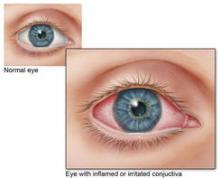KEYSTONE, COLO. – Daily sublingual immunotherapy for allergic rhinoconjunctivitis from grass pollens is well tolerated in North American adults, lending support for an alternative treatment modality in a patient population that has conventionally received subcutaneous medication, reported Dr. Harold S. Nelson and his coinvestigators.
Recently published results of a 439-patient randomized, phase III trial showed improved daily symptom and medication scores, compared with placebo, in adult patients using Merck’s Timothy grass (Phleum pratense) allergy immunotherapy tablet (AIT) during the 2009 pollen season, the researchers reported in a poster presentation at a meeting on allergy and respiratory diseases.
Improvements in total combined score (TCS) in patients aged 5-17 years who used the investigational AIT, compared with those who took placebo, were previously reported.
In all, 213 adults were randomized to the AIT (15 mcg of Phl p 5, a formulation of the Timothy grass allergen); the AIT group had a mean TCS score that was a significant 20% higher than the mean score in the placebo group (P = .005). The TCS score was the primary end point of the study and is a sum of the daily symptom score (DSS) and daily medication score (DMS) during the study period, said Dr. Nelson of National Jewish Health, Denver.
Secondary end points were the average DSS and average DMS during the study period, as well as the average weekly score for the Rhinoconjunctivitis Quality of Life Questionnaire. Similar higher scores for the AIT patients were seen in the secondary end points (J. Allergy Clin. Immunol. 2011;127:72-80).
Increases in specific IgE and IgE-blocking factors also were recorded in the AIT group. Levels of specific and blocking IgE were similar in both the AIT and placebo groups at baseline, but they increased in the AIT group over the 16-week treatment period. Levels were significantly increased during the peak and end phases of the season, Dr. Nelson reported at the meeting, which was sponsored by National Jewish Health.
Eleven patients in the AIT group and eight in the placebo group discontinued treatment as a result of adverse events. Adverse reactions were reported as transient in 73% of the AIT group and in 28% of the placebo group. No patients experienced anaphylactic shock.
The multicenter study was designed with a 2008 observational period preceding a dosing period prior to and during the 2009 grass pollen season. The patients had a mean age of 36 years, and most were white. Approximately 85% reported sensitivity to more than one grass pollen. Timothy grass crossreacts with a number of other grasses, including rye, sweet vernal, meadow fescue, bluegrass/june, orchard/cocksfoot, and redtop/bent/velvet.
Oral therapies for grass pollen allergy have been widely studied and used in Europe, but have been used more sporadically in North America. One long-term Danish study of grass AIT therapy in 257 patients supported evidence of a disease-modifying impact (J. Allergy Clin. Immunol. 2010;125:131-8).
In the United States and elsewhere, support for tablet-based medications has risen because of the safety concerns and inconveniences associated with injected immunotherapies.
Dr. Nelson and his coauthors reported current consultation and employment relationships, as well as prior advisory board or research support relationships, with study sponsor Merck.


